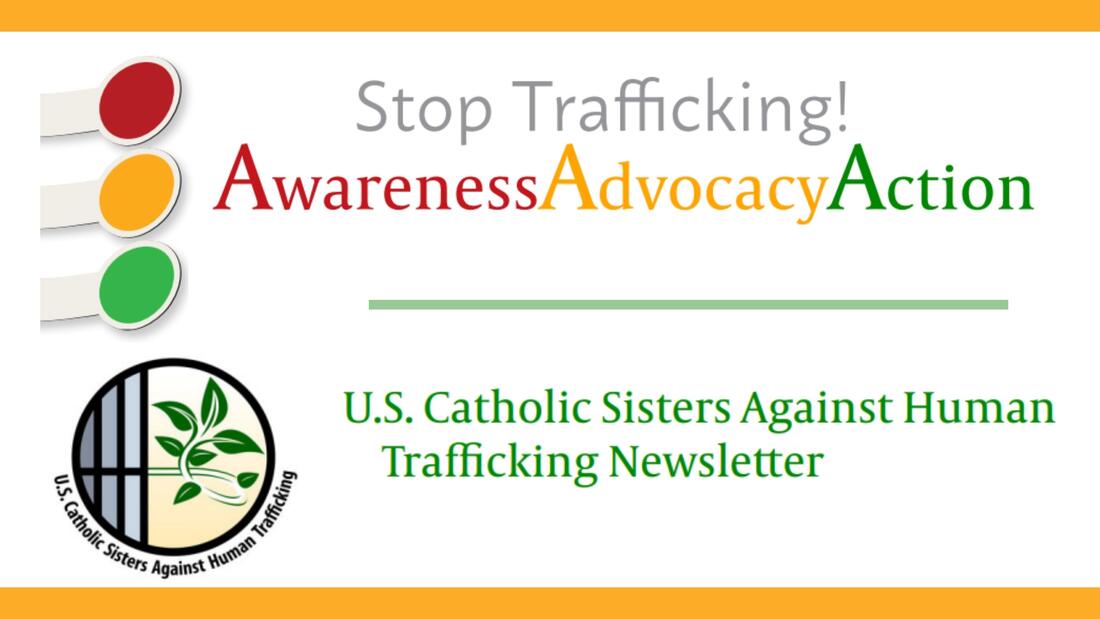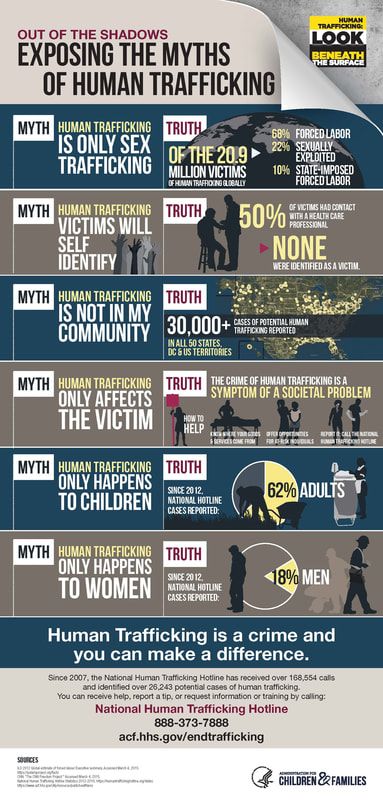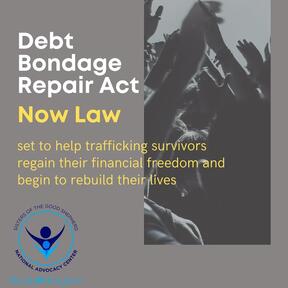Human Trafficking
|
|
It’s hidden, yet all around us. It’s invisible, yet in plain sight. The horror of human trafficking, both labor trafficking and sex trafficking, is increasing in our ever-shrinking world with the help of the internet, instant communication and the largest migration of humans in recorded history.
The vision of the Sisters of The Good Shepherd is that the worth and dignity of all human and created life is honored and celebrated. The Sisters are committed to respond to the anguish of the world "by taking courageous steps to use our international resources effectively, to network and to… work zealously with women and children, especially those who are trafficked…" To read or print their 2018 Position Paper on Human Trafficking in its entirety, click here. To read tor print he complete series of Our Lady of Charity of the Good Shepherd Position Papers, click here. For more background on the Good Shepherd 2018 Position Papers and to access them in Spanish, French or English, visit this site. Human Trafficking is:[1]
Human smuggling and human trafficking are different crimes. Smuggling is the illegal movement of someone across a border. Trafficking is the illegal exploitation of a person. Human Trafficking Takes Many Forms:[2] Sexual exploitation Forced labor Debt bondage Domestic servitude Organ removal Forced begging Child soldiers Forced marriage [1] https://www.dhs.gov [2] https://www.unodc.org/unodc/en/human-trafficking/crime.html Check out the May 2022 newsletter by the U.S. Catholic Sisters Against Human Trafficking of which the Sisters of the Good Shepherd is a member. This issue focuses on the National Center on Sexual Exploitation’s annual Dirty Dozen list.
News
Teen Internet SafetyThe hidden dangers: Scams, stalking and grooming
"From dates of birth and hometowns, to frequently visited restaurants and school locations, social networking sites like Facebook explicitly encourage users to share as much personal information as possible. Public profiles facilitate the anonymity of ill-intentioned strangers, and put teenagers at greater risk to receiving unwanted contact from predators, cyberbullies, and cyberstalkers. While most ‘friends’ and connections don’t have malicious intentions, public profiles can be viewed by anyone, anywhere and anytime. "Cyberstalking is stalking and harassment via use of technology, and is largely done over the internet. Cyberstalkers can take advantage of geo-location settings, open profiles and the availability of unprotected personal information on social networking sites to humiliate, threaten, frighten, control and manipulate victims. "Young adults are more than six times likely to fall victim to scams on social media than people aged over 55." To learn more, visit: https://yourgeardeconstructed.com/parents-internet-safety-security-screen-time-guide/ |
Human trafficking is a nonpartisan concern and is evil. Its numbers are staggering and eye-opening and do not need to be inflated to be worthy of attention. Let's keep our facts accurate and not lose sight of the survivors and those still enslaved.
Read The Washington Post's "The Fact Checker." The Numbers are Bad Enough
Today Show featuring work of Women Religious around the world
|
|
|
Help the Children Get Out of the Mines
The Good Shepherd International Foundation produced the film ‘Maisha: A New Life Outside the Mines’ documenting the living conditions of the artisanal mining community in Kolwezi and the impact that this community development project is having. The film was shown at more than 10 film festivals and screenings throughout the world. It was awarded numerous honors, including Best Documentary Short Film at the 12th Human Rights Film Festival of Barcelona and Best Ethnografic Film at the Vaasa Festival 2016.
Get more information. |
Good Shepherd Sister Receives Opus Prize
Sr. Catherine Mutindi, RGS, is successfully transforming communities and the lives of thousands who are working in the Kolwezi cobalt mines in the Democratic Republic of Congo. In recognition of her pioneering work to end human rights abuses, Sr. Catherine received the $1 million Opus Prize, one of the world's most prestigious awards. The Sisters are effectively addressing widespread human rights abuses - modern-day slavery - against children and women in the Kolwezi communities.



